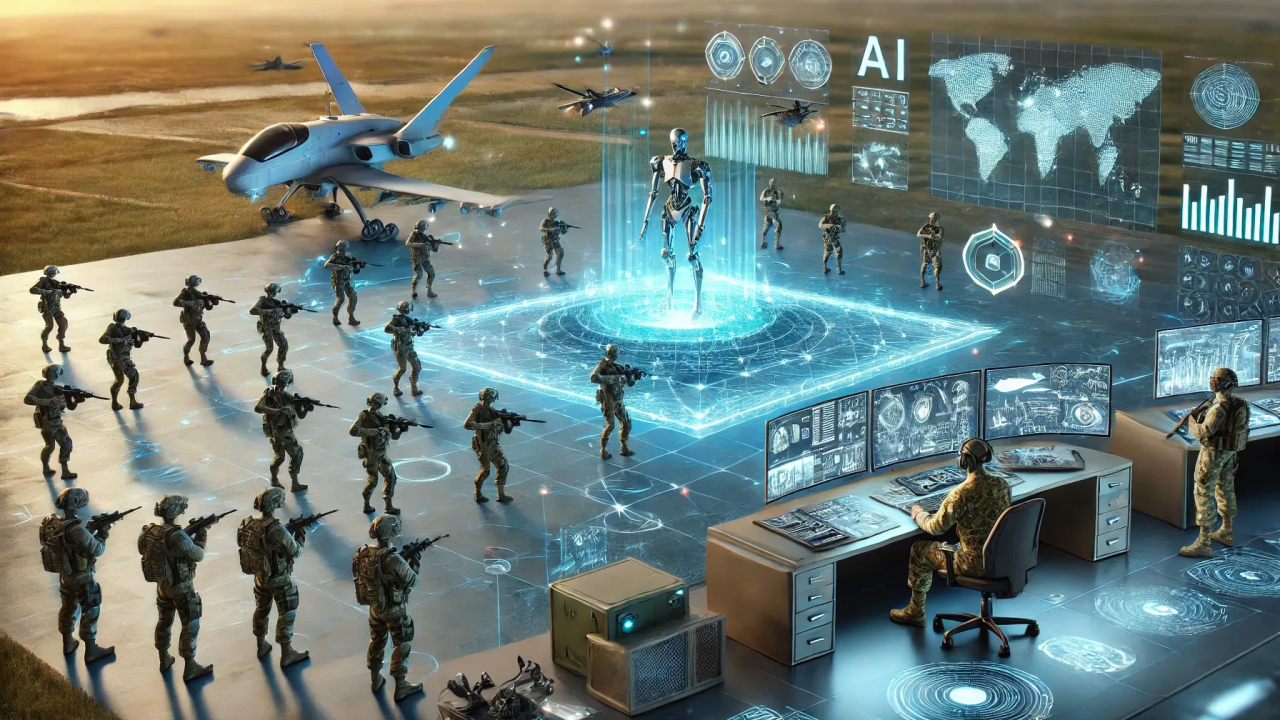The rise of intelligent warfare is a phenomenon that is reshaping the landscape of military strategy and technology. As nations around the globe seek to enhance their defense capabilities, the integration of artificial intelligence (AI) is becoming increasingly pivotal. This shift not only influences military operations but also significantly impacts the aerospace sector. The evolution towards more sophisticated forms of warfare presents both challenges and opportunities for aerospace enthusiasts and professionals.

Understanding Intelligent Warfare
Intelligent warfare refers to the use of AI and related technologies to improve the effectiveness and efficiency of military operations. This includes the deployment of autonomous drones, advanced surveillance systems, and AI-driven analytics to process vast amounts of data quickly and accurately. The aim is to gain a strategic advantage by making informed decisions faster than an adversary.
The Role of AI in Modern Warfare
AI plays a crucial role in modern warfare by enabling systems to learn and adapt in real-time. This capability is essential for tasks such as threat detection, target identification, and mission planning. The use of AI can lead to more precise and effective military operations, reducing the risk to human soldiers and increasing the likelihood of mission success.
Impact on Aerospace Technology
The aerospace industry is at the forefront of this technological revolution. As intelligent warfare becomes more prevalent, the demand for advanced aerospace technologies increases. This includes the development of more sophisticated drones, stealth technologies, and AI-powered navigation systems. These advancements are essential for maintaining air superiority and achieving strategic objectives.
Advancements in Drone Technology
Drones are a prime example of how intelligent warfare is influencing aerospace technology. These unmanned aerial vehicles (UAVs) are equipped with cutting-edge AI systems that allow them to perform complex tasks autonomously. This capability is invaluable for reconnaissance missions, precision strikes, and logistical support. You can read more about AI and drone swarms at Florida Space Authority.
Stealth and Counter-Stealth Technologies
In addition to drones, stealth technology is a critical component of intelligent warfare. Aerospace engineers are continually working to improve the stealth capabilities of aircraft, making them less detectable by enemy radar. At the same time, counter-stealth technologies are being developed to detect and track stealth aircraft, creating a dynamic and ongoing technological arms race.
Challenges of Intelligent Warfare
While the benefits of intelligent warfare are substantial, there are also significant challenges. One of the primary concerns is the ethical implications of using AI in military operations. The potential for autonomous systems to make life-and-death decisions raises important questions about accountability and the rules of engagement.
Ethical and Legal Considerations
The deployment of AI in warfare introduces new ethical and legal challenges. Policymakers and military leaders must address questions regarding the use of autonomous weapons and the potential for unintended consequences. The development of international regulations and guidelines is essential to ensure that the use of AI in military operations is both responsible and ethical.
Cybersecurity Risks
Another significant challenge is the cybersecurity risks associated with intelligent warfare. AI systems are vulnerable to cyberattacks, which can compromise their functionality and effectiveness. Ensuring the security of these systems is paramount to protecting sensitive military information and maintaining operational integrity.
Future Prospects of Intelligent Warfare
Looking to the future, the rise of intelligent warfare will continue to drive innovation in aerospace and military technology. The ongoing development of AI and related technologies promises to enhance the capabilities of military forces worldwide. However, it is crucial to balance technological advancement with ethical considerations and international cooperation.
Collaboration and Innovation
Collaboration between nations, industries, and academic institutions is essential to advancing intelligent warfare. By working together, stakeholders can share knowledge and resources, accelerating the development of cutting-edge technologies. Innovation hubs, such as those focused on AI innovation for defense, play a vital role in fostering this collaborative environment.
The Role of Policy and Regulation
Effective policy and regulation will be critical in guiding the development and deployment of AI in warfare. Governments must establish clear guidelines to ensure that the use of AI is consistent with international law and ethical standards. This includes addressing issues such as transparency, accountability, and human oversight.
Potential for Peace and Stability
Despite the challenges, the rise of intelligent warfare also holds the potential to enhance global peace and stability. By providing advanced tools for conflict prevention and resolution, AI can help reduce the likelihood of armed conflict. Moreover, the use of AI in humanitarian missions can provide critical support in times of crisis.
Conclusion
The rise of intelligent warfare is a transformative force in the defense and aerospace sectors. As nations continue to invest in AI and related technologies, the implications for military strategy, aerospace technology, and global security are profound. By addressing the challenges and embracing the opportunities, the international community can harness the power of intelligent warfare to build a safer and more secure world.

FAQ
What is intelligent warfare?
Intelligent warfare involves the use of AI and advanced technologies to enhance military operations, making them more efficient and effective.
How does AI impact aerospace technology?
AI impacts aerospace technology by driving advancements in areas such as drones, stealth technology, and navigation systems, which are essential for modern military operations.
What are the challenges of intelligent warfare?
The challenges of intelligent warfare include ethical considerations, legal implications, and cybersecurity risks associated with the deployment of AI in military operations.
For more information about the U.S. military’s approach to AI, visit the Voice of America article.

